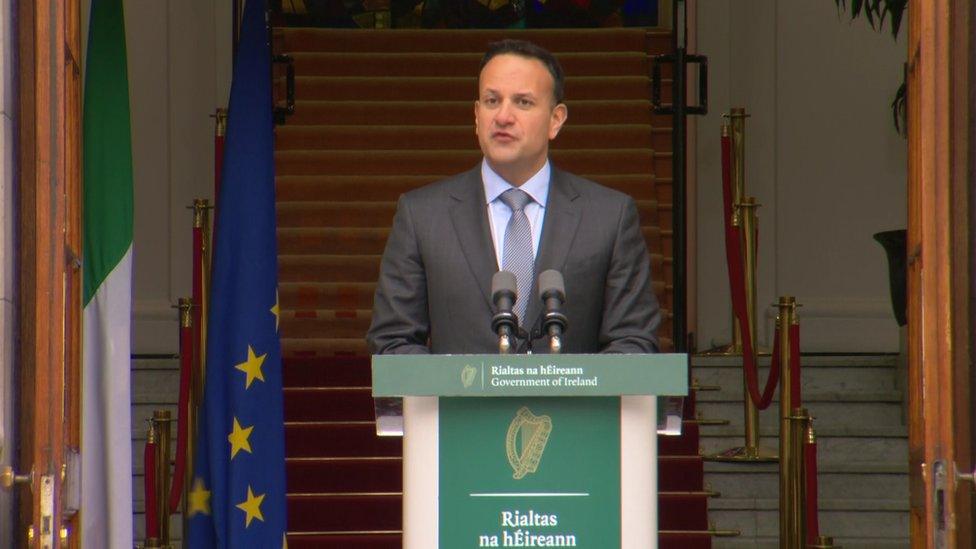Irish election: Who will be the next taoiseach?
- Published
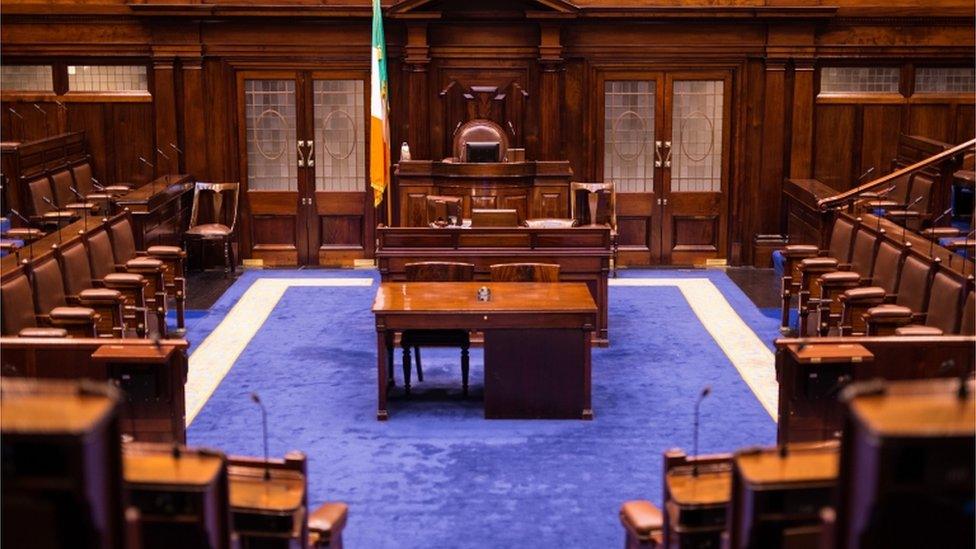
No party is expected to win an overall majority
The Republic of Ireland is deciding who will lead it for, potentially, the next five years.
Leo Varadkar is fighting to win a third successive term in government for his party, Fine Gael.
The main challenger to replace him as prime minister, or taoiseach, is the leader of Fianna Fáil, Micheál Martin.
Polls are suggesting that during the campaign, there's been an increase in support for Sinn Féin, led by Mary Lou McDonald, which goes into the election as the third largest party.
The overall arithmetic after polling day will be critically important - as no party is expected to win enough seats to command an overall majority in the main chamber of the Irish Parliament, the Dáil.

Who are the main figures in the campaign?
Leo Varadkar
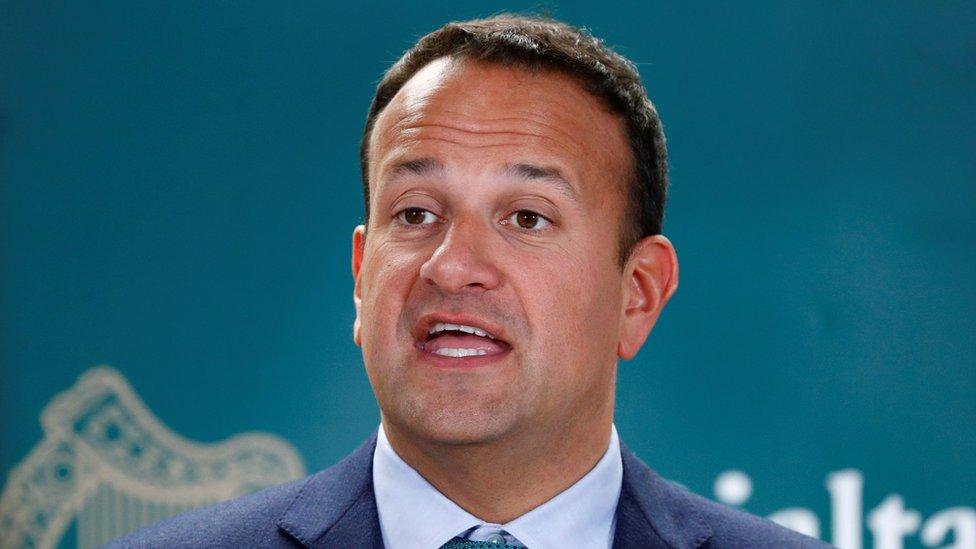
Leo Varadkar was a medical doctor before devoting his life to politics
Leo Varadkar was born in 1979 in Dublin and grew up in the city.
He followed his father into the medical profession.
When he was a 20-year-old student, he was interviewed by the Irish national broadcaster RTÉ as a member of young Fine Gael and expressed his ambition to one day be elected to public office.
He won a seat in the Irish Parliament in 2007 and became leader of his party, and therefore taoiseach, 10 years later.
His father is from Mumbai and Mr Varadkar most recently visited India only a few weeks ago.
Micheál Martin
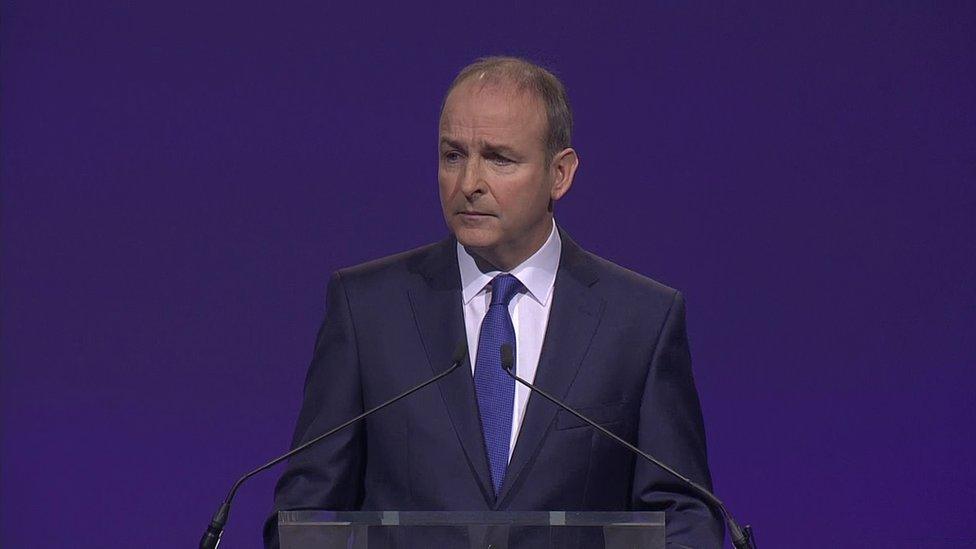
Micheál Martin became leader of Fianna Fáil in 2011
Micheál Martin is from Cork, the Republic of Ireland's second-biggest city.
He was born there in 1960.
Like Mr Varadkar, he was a prominent member of his party's youth wing while at university.
He worked for several years as a history teacher and became a member of the Dáil in 1989.
He took charge of Fianna Fáil in 2011.
Mary Lou McDonald
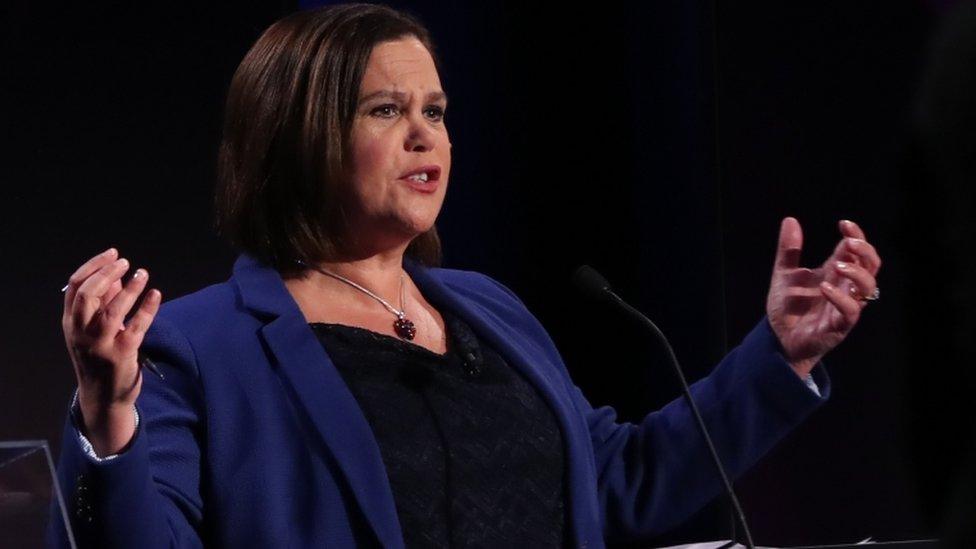
Mary-Lou McDonald succeeded Gerry Adams as Sinn Féin president in 2018
Mary Lou McDonald, born in 1969, is from the Irish capital.
She was Sinn Fein's first MEP in the Republic of Ireland from 2004 to 2009 and was elected to the Dáil in 2011.
In 2018, she ran unopposed to succeed Gerry Adams as leader of Sinn Féin, which is also the second-biggest party in Northern Ireland.

What have they done in their political careers so far?
Micheál Martin
Although his party has been out of power for nine years, Micheál Martin has had extensive experience as a government minister.
His first cabinet portfolio was education and science, which he took on in 1997.
He has also been enterprise minister, and foreign affairs minister.
And while he was in charge of the Department of Health, Mr Martin banned smoking in the workplace in 2004 - making Ireland the first country in the world to do so.
Leo Varadkar
Leo Varadkar is also a former health minister.
In a ministerial career stretching back nine years, he has also held the portfolio for transport, tourism and sport.
His last position before reaching the top job was social protection minister.
When Enda Kenny stood down as Fine Gael leader, Mr Varadkar became the youngest ever taoiseach- and is also Ireland's first gay head of government.
He called the referendum on Ireland's abortion laws in 2018, and afterwards his government passed legislation to implement the vote for abortion to be legalised.
Mary Lou McDonald
Since Mary Lou McDonald became Sinn Féin president, the party has had some disappointing results in elections in the Republic of Ireland.
It lost almost half of its local councillors, and two out of three MEPs, in the local government and European elections in 2019.
However, recent polls are suggesting the party has significantly increased its support ahead of the general election.

How is the campaign going?
Dr Theresa Reidy, a political scientist at University College Cork, observes that winning a third successive term is difficult for any party in any nation and that is the challenge for Leo Varadkar and Fine Gael.
"In a way, they're facing a governing penalty," Dr Reidy says.
"There are problems in health and housing that have been laid at their doorstep, and they have to account for their period in power."
She also points out that one aspect of the past could be "tricky" for Micheál Martin. He was a member of the last Fianna Fáil government, which was in power when a massive financial crisis struck Ireland amidst turmoil in the Eurozone.
"During the economic crisis, very serious cuts had to be made that had big consequences for people's lives," Dr Reidy says.
Mr Martin became party leader just before the 2011 general election, when Fianna Fail had its worst ever result by far, dropping into third place.
It recovered significant ground in the election five years later.


Following the last election in 2016 Fine Gael could only form a minority government, in coalition with non-party politicians.
It relied on a "confidence-and-supply" arrangement, whereby Fianna Fáil agreed to abstain in key votes to allow the government to operate.
Dr Reidy says: "Micheál Martin has been very successful in rebuilding Fianna Fáil. I think a lot of people who evaluated the scene in 2011 would have been very surprised to see the party back challenging for government in less than 10 years."
Fine Gael has emphasised that under its watch, Ireland has recovered from the crash to have the fastest-growing economy in the EU.
Opposition parties have focused more on what Dr Reidy describes as "quality-of-life issues", such as an "acute crisis" in the housing sector and hospital overcrowding.
What about Brexit?
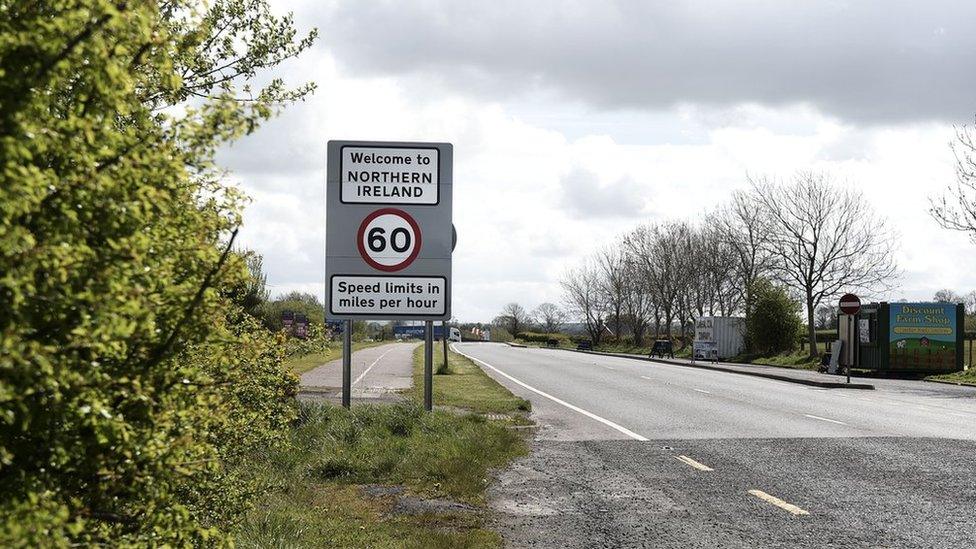
There was a consensus among the parties on the best approach to Brexit
Mr Varadkar, and the deputy leader of Fine Gael, Simon Coveney, have had a high profile overseas because of their central role in the Brexit process.
They have sought to highlight their roles in helping to secure a deal which is widely acknowledged as being a diplomatic success for Britain's nearest neighbour.
Mr Varadkar has said Brexit is "only at half-time" because trade negotiations between the UK and the EU are yet to come.
"The best team for Brexit" is among Fine Gael's election slogans.
However, there was a consensus amongst the main parties in Ireland over the best approach to Brexit.
According to Dr Reidy, that is one of the reasons why Brexit hasn't been a pivotal issue in the campaign, "there's not much party division or disagreement."
Mr Martin has accused Fine Gael of a "cynical" attempt to "politicise" Brexit.
He argues that his party has had plenty of experience of negotiating within, and as part of, the EU.
He points out that a Fianna Fáil government brought Ireland into the EU's forerunner, the European Economic Community.
Sinn Féin is pointing to Brexit as one of the main reasons to push for one of its priorities, the unification of Ireland, given that 56% of people in Northern Ireland voted to remain in the EU.
Fine Gael and Fianna Fáil argue that holding a referendum on Irish unity in the next few years would be destabilising and risk raising tensions in Northern Ireland.
How 'presidential' is the campaign?
Many commentators say this campaign has had a stronger focus on party leaders than usual.
There are a number of reasons for this.
Polls suggest the result could be close, whereas Fine Gael was strongly expected to get the most seats in the last two general elections.
The two main television broadcasters in the Republic of Ireland have organised one-on-one debates between Mr Martin and Mr Varadkar.
Sinn Fein has strongly objected to this, claiming Ms McDonald ought to be included too.
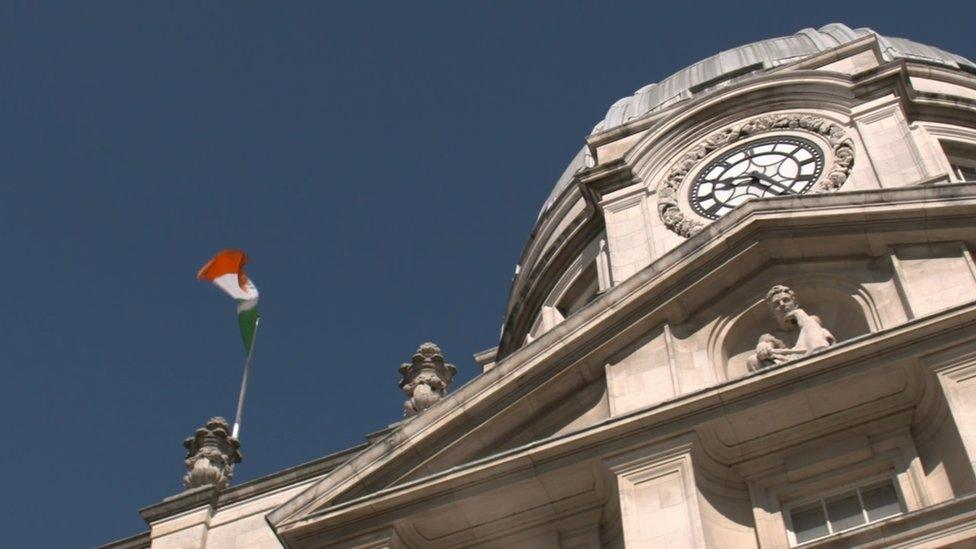
The number of independents has been growing in the Irish parliament
The Irish political landscape has become more fractured in recent years, with independents and smaller parties taking ground from the "big two".
In the 2002 general election, Fianna Fáil and Fine Gael took just over 67% of the first preference vote between them.
In 2016, the figure was just under 50%.
Winning the largest number of seats on 8 February will only be the start. Complex coalition negotiations are set to follow.
Could Sinn Féin be in government?
Both Mr Martin and Mr Varadkar insist they will not go into a coalition with Sinn Féin.
Mr Varadkar has said Sinn Féin is "soft on crime and high on tax".
During the conflict in Northern Ireland, Sinn Féin was regarded as the "political wing" of the main republican paramilitary group, the IRA.
Mr Martin has said Sinn Féin has "no contrition" for the past.
Sinn Féin emphasises its role in the peace process and Ms McDonald has dismissed claims that unelected party officials dictate policy to its politicians.
Dr Theresa Reidy believes Fine Gael and Fianna Fáil will "pursue alternatives right to the very end" rather than explore an arrangement with Sinn Féin.
However, she also says: "Over the last number of decades parties have tended to be quite flexible in their approach to coalition negotiations."
Ultimately, how the 160 seats in Dáil Éireann shape up will determine the path of government formation and, indeed, if a stable government can be formed.
- Published14 January 2020
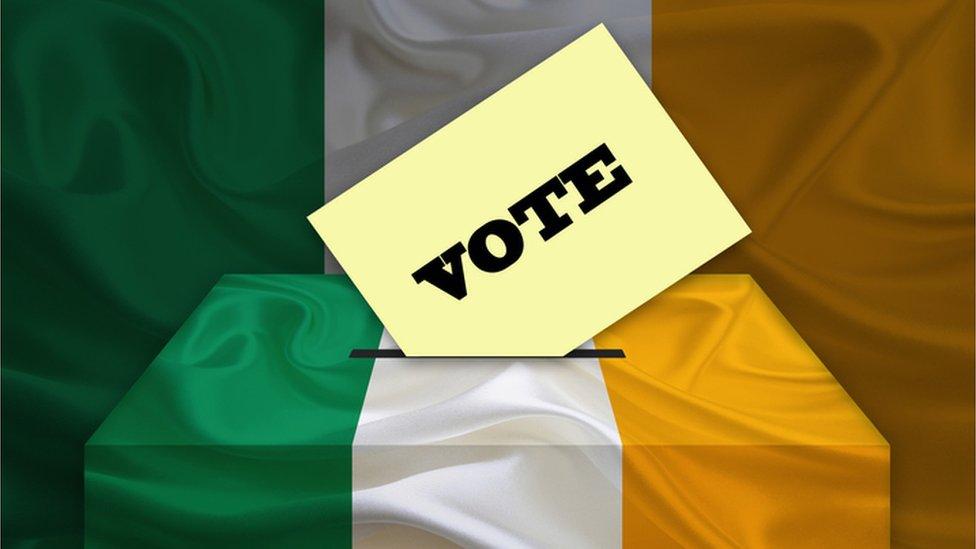
- Published14 January 2020
